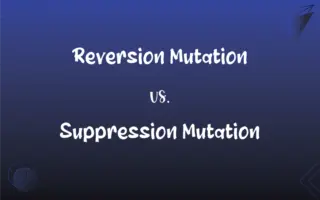GPS vs. GIS: What's the Difference?
Edited by Aimie Carlson || By Janet White || Published on March 7, 2024
GPS is a global navigation satellite system providing geolocation and time information, while GIS is a framework for gathering, managing, and analyzing spatial and geographic data.

Key Differences
GPS (Global Positioning System) is a satellite-based navigation system that provides precise location and time data in all weather conditions, anywhere on or near the Earth. In contrast, GIS (Geographic Information Systems) refers to a system designed to capture, store, manipulate, analyze, manage, and present spatial or geographic data. While GPS focuses on identifying exact positions, GIS is concerned with the broader aspect of managing and analyzing geographical data.
GPS technology is widely used in navigation, surveying, mapping, and various scientific applications. It works by receiving signals from satellites to determine the precise location of a GPS receiver. GIS, on the other hand, is a technology that integrates various types of data and is used in planning, management, logistics, insurance, telecommunications, and business. GIS links location data with descriptive information, enabling users to visualize, question, analyze, and interpret data to understand relationships, patterns, and trends.
The primary data used in GPS are coordinates and time, which are crucial for determining the exact position of an object or individual. GIS, however, deals with a variety of data types, including maps, satellite imagery, aerial photography, and statistical information. This data is used in various fields like urban planning, environmental management, transportation planning, and disaster response and mitigation.
GPS and GIS can interact synergistically. GPS data can be integrated into GIS databases to enhance the spatial accuracy of GIS applications. For example, a GPS device can be used to collect spatial data points that are then analyzed within a GIS framework for a more detailed and accurate geographical analysis.
Comparison Chart
Primary Function
Satellite-based navigation
Spatial data analysis and management
ADVERTISEMENT
Data Focus
Location coordinates and time
Diverse spatial and geographic data
Common Uses
Navigation, mapping, tracking
Planning, management, research
Data Collection
Receives satellite signals
Integrates various data sources
Analysis Capability
Limited to location and timing
Extensive spatial data analysis
GPS and GIS Definitions
GPS
GPS is a satellite-based navigation system providing real-time location and time data globally.
Using GPS, the delivery driver found the quickest route to the destination.
ADVERTISEMENT
GIS
GIS integrates various data sources for comprehensive geographical information management.
GIS combined census data with environmental data to assess population vulnerabilities.
GPS
GPS is essential for precision in global mapping and surveying applications.
Surveyors used GPS technology to accurately map the new construction site.
GIS
GIS is a system for capturing, storing, analyzing, and managing geographic and spatial data.
The city planners used GIS to develop a new urban expansion strategy.
GPS
GPS technology enables geolocation services in smartphones and other devices.
My smartphone's GPS helped me navigate through the unfamiliar city streets.
GIS
GIS technology enables enhanced data visualization through mapping and spatial analysis.
By using GIS, researchers visualized the spread of the disease across the region.
GPS
GPS systems are integral to modern transportation, aiding in efficient route planning.
The airline uses GPS for precise navigation during flights.
GIS
GIS is crucial for environmental management, urban planning, and resource management.
The forestry department utilized GIS to manage and monitor forest resources effectively.
GPS
GPS provides critical timing and synchronization for various technological applications.
The network's synchronization relies on the precise timing provided by GPS signals.
GIS
GIS supports decision-making processes through spatial data analysis and interpretation.
Emergency responders used GIS to plan evacuation routes during the natural disaster.
GPS
A navigational system involving satellites and computers that can determine the latitude and longitude of a receiver on Earth by computing the time difference for signals from different satellites to reach the receiver
GIS
Alternative spelling of jizz
FAQs
What is GPS?
GPS is a global satellite-based navigation system providing location and time information.
What is GIS?
GIS is a system for managing and analyzing geographic and spatial data.
What are the primary uses of GIS?
GIS is used in urban planning, environmental management, and spatial data analysis.
What devices use GPS?
Smartphones, navigation systems, and many modern vehicles use GPS.
Can GPS work without the internet?
Yes, GPS can function without the internet by connecting directly to satellites.
Are GPS and GIS related?
Yes, GPS data can be integrated into GIS for enhanced spatial accuracy and analysis.
How is GIS used in disaster management?
GIS analyzes spatial data to plan and execute emergency responses and evacuation routes.
How does GPS work?
GPS works by receiving signals from satellites to determine precise location coordinates.
Is GIS only about maps?
No, GIS involves much more than maps, including data analysis, management, and visualization.
Is GPS accurate?
GPS is highly accurate, often within a few meters, depending on the conditions.
Can GIS data be shared easily?
Yes, GIS data can be shared and integrated across various platforms and systems.
How does GIS benefit environmental research?
GIS helps in environmental research by mapping and analyzing ecological data.
What's the difference between GPS and a map?
GPS provides real-time location data, while a map is a static representation of geographic areas.
How does GIS help in urban planning?
GIS assists in urban planning by analyzing spatial data for infrastructure development and land use.
Can GPS track speed?
Yes, GPS can calculate speed based on location changes over time.
How often is GPS updated?
GPS satellite data is continuously updated for accuracy and reliability.
What skills are needed for GIS?
Skills in data analysis, geography, and computer science are beneficial for GIS.
Is GIS complicated to learn?
GIS can be complex but is accessible with training in geography and data analysis.
What are the limitations of GPS?
GPS accuracy can be affected by obstacles like buildings, trees, and atmospheric conditions.
Can GIS predict future trends?
GIS can model and predict trends using historical and current spatial data.
About Author
Written by
Janet WhiteJanet White has been an esteemed writer and blogger for Difference Wiki. Holding a Master's degree in Science and Medical Journalism from the prestigious Boston University, she has consistently demonstrated her expertise and passion for her field. When she's not immersed in her work, Janet relishes her time exercising, delving into a good book, and cherishing moments with friends and family.
Edited by
Aimie CarlsonAimie Carlson, holding a master's degree in English literature, is a fervent English language enthusiast. She lends her writing talents to Difference Wiki, a prominent website that specializes in comparisons, offering readers insightful analyses that both captivate and inform.






































































